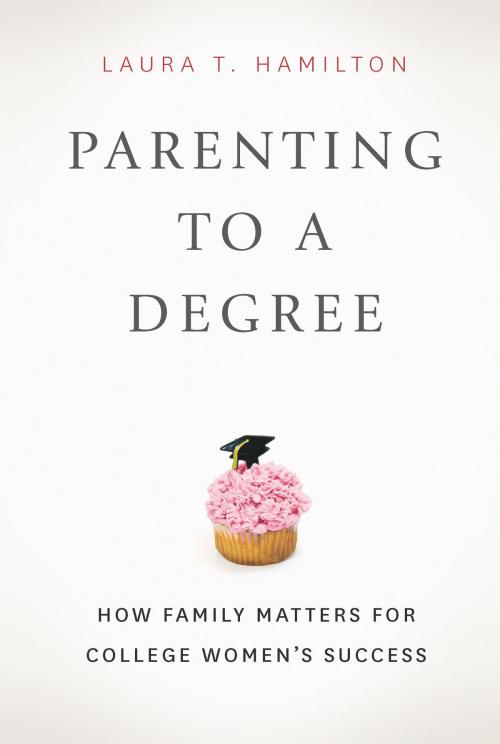Parenting to a Degree
How Family Matters for College Women's Success
Nonfiction, Reference & Language, Education & Teaching, Higher Education, Social & Cultural Studies, Social Science, Sociology| Author: | Laura T. Hamilton | ISBN: | 9780226183671 |
| Publisher: | University of Chicago Press | Publication: | April 29, 2016 |
| Imprint: | University of Chicago Press | Language: | English |
| Author: | Laura T. Hamilton |
| ISBN: | 9780226183671 |
| Publisher: | University of Chicago Press |
| Publication: | April 29, 2016 |
| Imprint: | University of Chicago Press |
| Language: | English |
Helicopter parents—the kind that continue to hover even in college—are one of the most ridiculed figures of twenty-first-century parenting, criticized for creating entitled young adults who boomerang back home. But do involved parents really damage their children and burden universities? In this book, sociologist Laura T. Hamilton illuminates the lives of young women and their families to ask just what role parents play during the crucial college years.
Hamilton vividly captures the parenting approaches of mothers and fathers from all walks of life—from a CFO for a Fortune 500 company to a waitress at a roadside diner. As she shows, parents are guided by different visions of the ideal college experience, built around classed notions of women’s work/family plans and the ideal age to “grow up.” Some are intensively involved and hold adulthood at bay to cultivate specific traits: professional helicopters, for instance, help develop the skills and credentials that will advance their daughters’ careers, while pink helicopters emphasize appearance, charm, and social ties in the hopes that women will secure a wealthy mate. In sharp contrast, bystander parents—whose influence is often limited by economic concerns—are relegated to the sidelines of their daughter’s lives. Finally, paramedic parents—who can come from a wide range of class backgrounds—sit in the middle, intervening in emergencies but otherwise valuing self-sufficiency above all.
Analyzing the effects of each of these approaches with clarity and depth, Hamilton ultimately argues that successfully navigating many colleges and universities without involved parents is nearly impossible, and that schools themselves are increasingly dependent on active parents for a wide array of tasks, with intended and unintended consequences. Altogether, Parenting to a Degree offers an incisive look into the new—and sometimes problematic—relationship between students, parents, and universities.
Helicopter parents—the kind that continue to hover even in college—are one of the most ridiculed figures of twenty-first-century parenting, criticized for creating entitled young adults who boomerang back home. But do involved parents really damage their children and burden universities? In this book, sociologist Laura T. Hamilton illuminates the lives of young women and their families to ask just what role parents play during the crucial college years.
Hamilton vividly captures the parenting approaches of mothers and fathers from all walks of life—from a CFO for a Fortune 500 company to a waitress at a roadside diner. As she shows, parents are guided by different visions of the ideal college experience, built around classed notions of women’s work/family plans and the ideal age to “grow up.” Some are intensively involved and hold adulthood at bay to cultivate specific traits: professional helicopters, for instance, help develop the skills and credentials that will advance their daughters’ careers, while pink helicopters emphasize appearance, charm, and social ties in the hopes that women will secure a wealthy mate. In sharp contrast, bystander parents—whose influence is often limited by economic concerns—are relegated to the sidelines of their daughter’s lives. Finally, paramedic parents—who can come from a wide range of class backgrounds—sit in the middle, intervening in emergencies but otherwise valuing self-sufficiency above all.
Analyzing the effects of each of these approaches with clarity and depth, Hamilton ultimately argues that successfully navigating many colleges and universities without involved parents is nearly impossible, and that schools themselves are increasingly dependent on active parents for a wide array of tasks, with intended and unintended consequences. Altogether, Parenting to a Degree offers an incisive look into the new—and sometimes problematic—relationship between students, parents, and universities.















